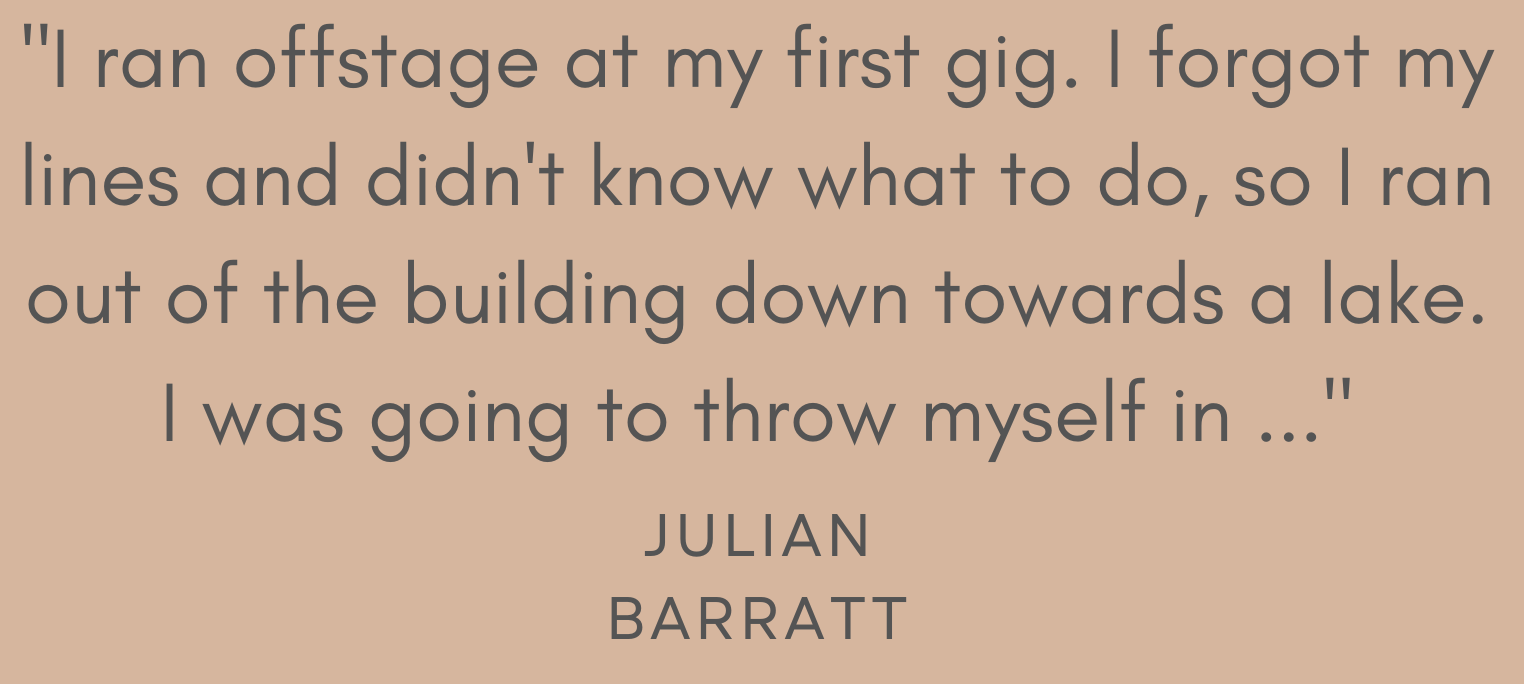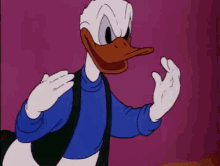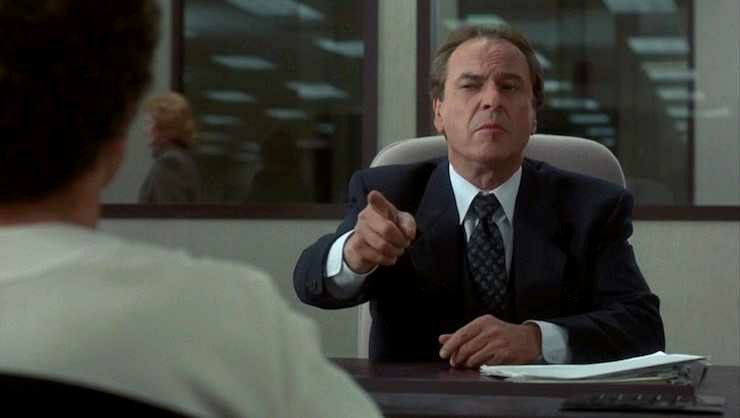2. Neither Here Nor There
Quote
This line comes straight from "Bollo" on The Mighty Boosh, and is said to Howard when he reaches the Afterlife.
The Structure of the Afterlife
The eschatology of the Afterlife in Between Life and Death has been strongly influenced by the 1991 romantic-comedy fantasy film Defending Your Life, written and directed by, and starring, Albert Brooks. I have a particular love of whimsical light fantasy films which focus on the Afterlife – they are sometimes called films blanc ("white films") as opposed to film noir, which is dark and cynical.
The setup and world building of Between Life and Death is very similar to the film, but to the best of my recollection, there are significant differences when it comes to characters, dialogue, and plot. However, I haven't seen the film for quite a while (I didn't rewatch it, in case too much of it got into the story), so if you view it, let me know if I unconsciously copied more than I thought I did.
The Waystation
This is the place Julian is brought to, somewhere where the recently deceased spend after death so that they might receive healing, rest, and recreation. It is also where they will be assessed to decide what the next stage of their spiritual journey will be.
It is the equivalent of Judgment City in Defending Your Life – except that while Judgment City was American, and specifically Californian, in nature, the Waystation is conspicuously British. The Waystation is also the equivalent of Limbo in the "Bollo" episode of The Mighty Boosh, but the Waystation is much nicer than either of these Afterlife waiting rooms.
Forward
What we would call Heaven, although Marcus indicates it may very well be different to what we imagine. In Defending Your Life, this is alluded to as a higher plane of existence where growth and learning continue – I don't think the film gives it a name that I can recall. We can feel confident that it is a place of bliss, joy, and love.
Back
Much more common than going Forward is being sent Back to Earth for another lifetime, in a system very much like reincarnation. There is no Hell, and there isn't really any punishment, even though it might feel like it. It is made clear that going Back is simply so that further lessons might be learnt.
This is the case in Defending Your Life too, except that in the film, the Universe destroys souls after a certain number of reincarnations, impatient with their lack of progress. This seemed wrong to me, both morally and against the laws of physics/metaphysics, so in Between Life and Death, every soul will eventually go Forward, no matter how many lifetimes it may take.
Sideways
The equivalent of what we would call Purgatory. Those who are not ready for Forward may be sent Sideways, in order to learn the lessons that they need. However, they are guaranteed to go Forward from Sideways; they cannot be sent Back to Earth from that point.
There is no Purgatory state in either Defending Your Life or The Mighty Boosh. It seemed like something that Julian, as someone with a Catholic background, would readily understand, and I was greatly impressed by an article I read by a philosopher. Although an atheist, and not believing in any kind of Afterlife, he said that the entire concept of Heaven made no sense at all, unless there was also a Purgatory. This he demonstrated simply and mathematically, to my complete satisfaction. Unfortunately, the internet seems to have eaten it.
Julian Reality Check
Mary brings Julian a perfect mug of tea, very strong, just as he likes. Julian does enjoy strong tea, and uses two teabags per mug, which he refuses to apologise for.
Julian's surname is Pettifer – he uses his middle name of Barratt professionally, as there is an award-winning television journalist named Julian Pettifer. In real life, I think Julian would have been Julian Pettifer for at least a few of his early comedy gigs, he didn't change it immediately, so this is fictionalised for the sake of the story. If you think this is a clue, write it down. If you think it is a red herring, put a question mark after it.
Julian's birth date really is May 4, 1968.
The potted history of Julian's early career is vaguely correct, in that he was in a band, dropped out of university, and began doing stand-up, but the exact timeline is unclear. Julian is 24 in the story, and I don't think he'd actually embarked on comedy at this stage, so it's a fictionalised version of the truth, with events rearranged to suit the story.
Julian had a bit of an anxiety attack at his first gig. He didn't get heckled or anything like that, I added that in for the sake of drama.

Luckily, the compere came out and told Julian that he was doing well, and to come back in and finish the gig. So I wrote an AU where Julian really did throw himself into a lake. Julian did his first stand up at Reading University, where he studied, and the lake he ran towards was Whiteknights Lake, on the university campus.
Julian has acknowledged his bisexuality, if rather coyly. I have no idea if he really did suffer any doubts or anxieties over it, although it doesn't seem implausible, and it's possible that by the age of 24 he was perfectly comfortable with his sexuality. So this is fiction, with some basis in truth.
Julian's religious background is Catholic, and he has described himself as still suffering from Catholic guilt, even though he isn't practising. I think I have given a fair summing up of his spiritual background and beliefs; he has described himself as an atheist, although demonstrating some discomfort with that, as he does believe (or want to believe?) in transcendent realities. He is aware of a part of himself that is attuned to the metaphysical, for lack of better words.
Julian has spoken several times about his discomfort with being judged or assessed, and heartily dislikes reviews and interviews. He has never been successful at an audition, even though he always prepares very carefully. He briefly grouched about A Level exams. With the slightly evil mindset of a fanfiction writer, I thought it would be interesting to put him up against the ultimate judgment – that of the soul in the Afterlife.

Drowning
Note that this story features a drowning episode due to mental health issues, just like in Hamlet. Have you bought a copy of Hamlet yet? Maybe you should!
No Religion in the Afterlife
Marcus Hoffman tells Julian not to think any more of people as being in religious categories, such as "Catholic" or "atheist". That's because in the Book of Revelation, the Bible tells us that there is no religion or places of worship in Heaven. Religion is something for Earth, not the Afterlife, and there is no further use for it there.
The Ethics of Ending Your Life
Readers may wonder why Julian faces punishment for taking his own life, when Marcus explicitly says it isn't a sin (and in fact, they do not use that concept in this Afterlife). However, Marcus does say that Julian's actions still have consequences, a bit similar to the idea of Karma. We can perhaps think of each person having particular lessons to learn or work to do in life, and committing suicide is like dropping a class in college, or leaving work early - those tasks then need to be made up for in some other way.
Julian is not facing punishment, merely the possibility of being sent Back to complete his tasks. But everyone is treated on a case-by-case basis, with their individual circumstances taken into account. I don't believe everyone who ends their own life would necessarily be sent back to Earth.
Mary as a Healer
You will notice that the healing techniques that Mary uses are – outwardly at least – natural healing and wellbeing, such as herbal baths, nourishing food, and plenty of sleep and rest. The medicines she provides (and everything else) are probably what we would consider "magical", and are certainly otherworldly.
Characters
Marcus Hoffman
His name is taken from Marcus Hoffman from The Mighty Boosh, played by Simon Farnaby. Marcus is in Series 1 Episode 6, "Electro", where Howard and Vince mistake him for an executive at Pieface Records because he has a pie for a face. However, this turns out to be a coincidence.
Marcus is the equivalent of Bob Diamond, played by Rip Torn, in Defending Your Life. He is a defense attorney tasked with arguing that his deceased client should be allowed to "move on" to the next phase of his Afterlife existence. Marcus in the story is not very much like either of these two inspirations, but he does wear blue, like Bob Diamond [pictured below].


Bạn đang đọc truyện trên: AzTruyen.Top